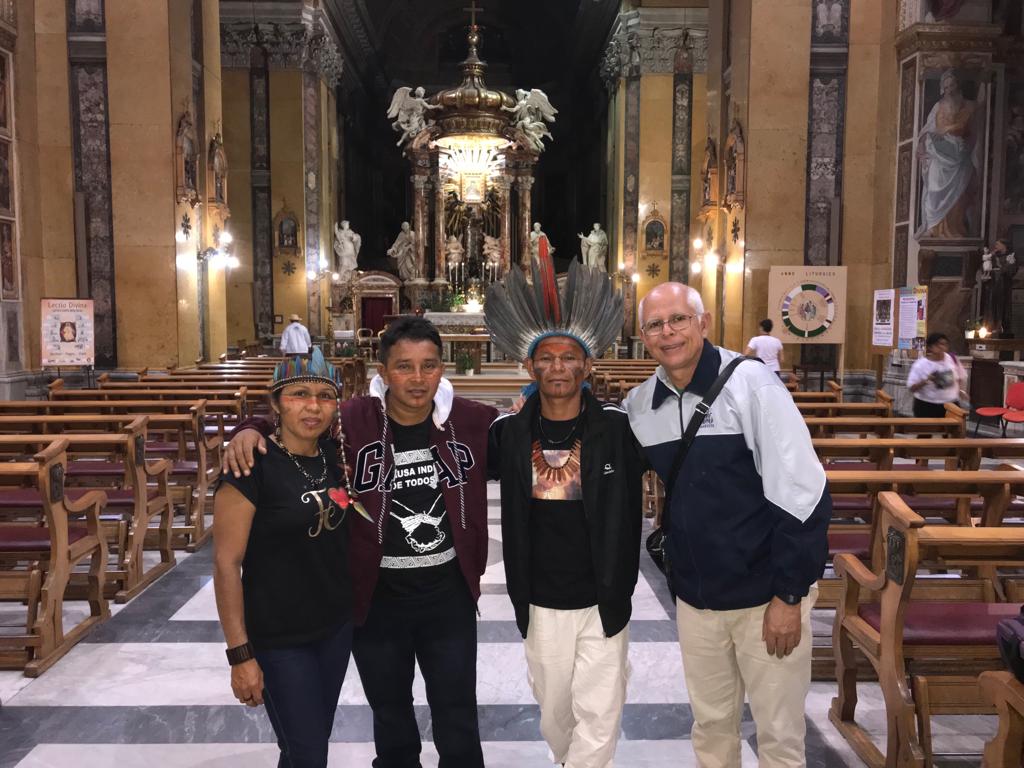
Connection – Optimism – Hope
During the opening prayer of the Synod for Amazonia, which was held in Rome between October 6-27, Pope Francis asked that the Synod be lived with intelligence, truth and peace. I believe that it is this vision that must take precedence in the journey of the Synod. Peace does not signify passivity, but a profound certainty that our concerns have meaning and exist as part of a deep relationship with the God of Life; this God who, in addition to generating life, wants this life to be protected and defended. When I consider my participation both in the preparation and the operation of the Synod, three ideas immediately come to my mind: connection, optimism, hope.
Connection
Our awareness is growing that everything in our Common Home is inter-connected. The Synod thus connects the long and effective preparatory phase – thanks to the consultation of about 85,000 people who sent their suggestions – to those who meet in the Synod hall; connection between Catholic leaders from all continents and those from different forms of belonging to the Church; connection between them and scientists as well as representatives of other religions or social organizations. Each of them has his or her place as a carrier of information and reflection to socialize, interact, take responsibility, and nurture hope.
Optimism
The Synod puts forward the theme of care, as much for the Church in its work of evangelization, as for Mother Nature and Amazonian peoples – constantly promoting the search for new directions for the Church and for an integral ecology. This positive vision manifests itself in the synergy demonstrated between those who believe in this synodal process and those who display boldness and courage in its realization.
Hope
This is a theme picked up by thousands of people who have participated in the synodal process since the early stages of its preparation. In the midst of a significant global crisis, we find that the Common Home runs the risk of lapsing quickly into a coma. Hence our hope of finding new ways, starting from the Amazonian context, towards an integral ecology which has a vision of this as a good for the whole church and all humanity. There is still time to save the planet. But a change of attitudes is needed which requires an “ecological conversion” of all the inhabitants of the earth. The concern to take care of the Amazon biome is an invitation to all to take care of other biomes, because all constitute a common heritage for those who share this Common Home.
In Rome, we continually experience the universality of Christianity. And the people of Amazonia felt welcomed in this Common Home with their way of being, thinking and celebrating. The Synod united so many people from so many places. There has been an international welcome for the data and concerns that the Amazon represents. Data that can guarantee life on the planet, given that it is the region with the greatest biodiversity and whose ecosystems are fundamental to climate balance and so many other aspects of life. Everything is connected to the cultures and the millennial wisdom of its people. It was obvious that the care of the many sources of life in the Amazon, coveted and poorly protected, was cause for concern. It has been said that the Synod on the Amazon has favored the arrival of the periphery towards the center and that this symbiosis is very important.
It is also very important that all humanity assume the protection of the Amazon. The Amazon does not want to be just a point of reference. And it cannot stand on its own. Its good is the good of all and all other realities of the world. And she needs all and all other realities of the world. It needs this universal consciousness for its care, whether in the ecclesial dimension or in the dimension of integral ecology. I believe that this shared consciousness will be one of the great legacies of the Synod on the Amazon. Please God that this awareness generates an abundance of protective actions in favor of life!
“Mary, the Mother who cared for Jesus, now cares with maternal affection and pain for this wounded world … we can ask her to enable us to look at this world with eyes of wisdom.” (Laudato Si’ : 241)
____________
Br. João Gutemberg (Province of Brasil Sul-Amazônia) – Participant at the Synod
